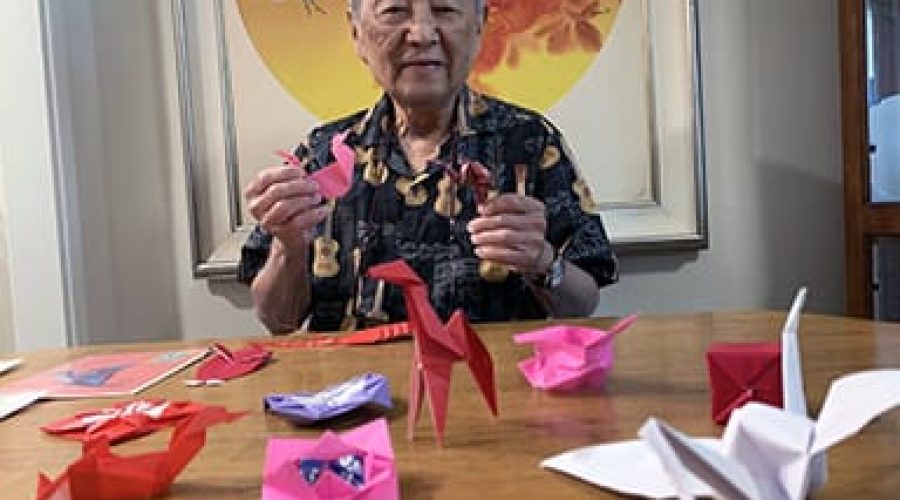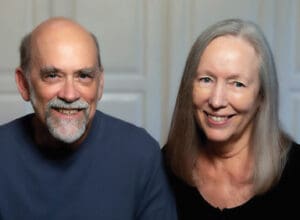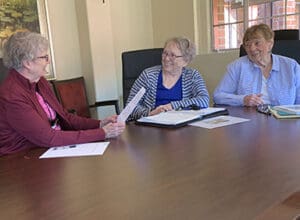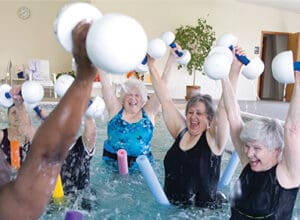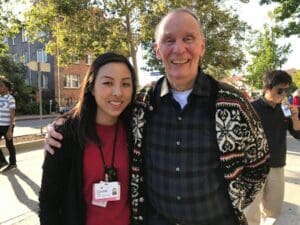Are you ready to unfold the magic of origami? Meet David Kane, a talented Claremont Manor resident who has taken this traditional art form to new heights! With his nimble fingers and creative mind, David taught himself this ancient art form more than 70 years ago. He not only creates all sorts of amazing figures but also shares his passion through teaching.
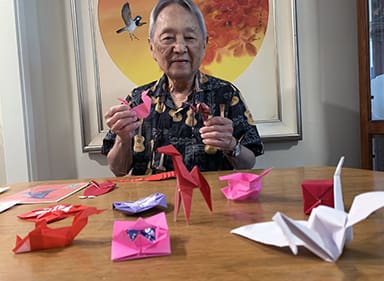
“He doesn’t just breathe life into paper, he breathes magic into it,” said one of his students. From the elegant sweep of graceful swans and the intricate bloom of flowers, to mesmerizing geometric marvels and puppetry that dance with life, David’s origami creations evoke nothing short of sheer awe.
Origami is a centuries-old art form that traces its origins to the Land of the Rising Sun in the 17th century, although China, with its rich tradition of paper manipulation, also has a stake in this captivating tale. The word is derived from the fusion of two Japanese words — “ori” meaning “fold” and “kami” meaning “paper”. It involves creating paper forms entirely by folding — typically birds, other animals, geometric shapes, puppets, masks, and boxes.
Artists find inspiration in many ways. For David, a retired educator and college professor, being an eyewitness to the historic events of World War II and its aftermath was his catalyst. Born in Hawaii of Japanese descent, David was 12 years old when he was an eyewitness to the Pearl Harbor attack on December 7, 1941. He also read about the terrible devastation caused when four years later, the United States dropped two atomic bombs on Hiroshima and Nagasaki to end the war.
David’s artistic journey began after reading about Sadako Sasaki, a Japanese girl who was severely burned by radiation as a result of the Hiroshima bomb. While the 12 year old girl was recuperating in a Japanese hospital, she believed her illness would disappear if she completed 1,000 origami cranes.
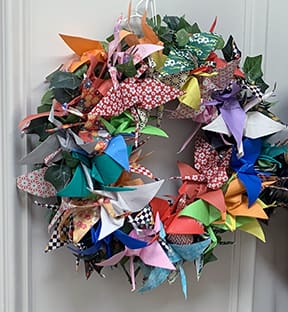
Sadako fell short of her goal of folding 1,000 cranes, having folded only 644 before her death in 1955, at age 14. But her friends completed the 1,000 and buried them all with her. David was one of those friends.
“Her story really moved me,” David said. “I wanted to help. I needed to help.” At that point, David knew nothing about origami but used his newly realized inspiration to take action. He read several books on paper folding and taught himself how to make a paper crane. He ended up sending 100 cranes to Sadako.
“I realized what a beautiful art origami is and continued learning,” David said. “Soon, it became a passion.” David describes origami as a union between the mathematics of geometry and the visual arts. It’s a place where right brain meets left.
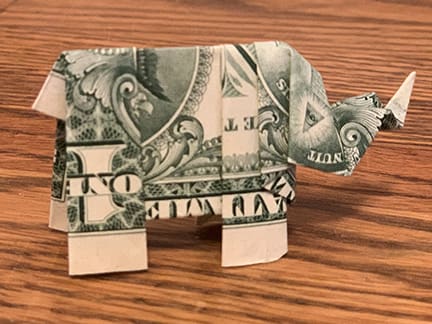
Dozens of origami cranes are displayed throughout his apartment at Claremont Manor. One of David’s most intricate pieces is an elephant folded from a dollar bill and one of his most ambitious pieces is a wreath that hangs on his front door, a collage of 50 colorful cranes strung together. “Some take a few hours and some take up to 50 hours to make,” David said. “For me, it’s relaxing, a way to be creative and most of all, it’s very enjoyable.”
“Origami is a blend of geometry and visual art,” David said. He showcases his favorite pieces at Claremont Manor and welcomes all skill levels to fun-filled workshops, sharing secrets and guiding students to create their origami masterpieces in just a few hours.
“Origami stimulates creativity and imagination and develops patience and dexterity of hand,” David said. “With a little time and desire to make something of beauty, anyone can enjoy this art.”
During his teaching career, David authored a textbook titled “Proofreading and Editing Precision,” which was widely used at high schools and colleges throughout the U.S. He has a degree in business communications with applied psychology.
